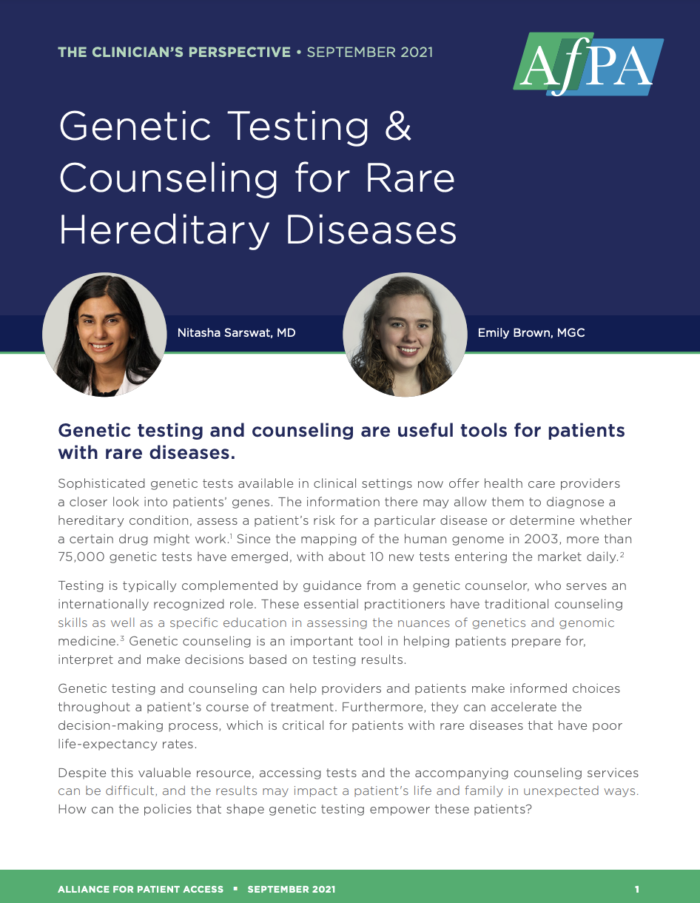Genetic testing and counseling can be critical for health care providers and patients to make informed treatment choices – especially when it comes to rare diseases.
So explain Nitasha Sarswat, MD, and Emily Brown, MGC, in “Genetic Testing & Counseling for Rare Hereditary Diseases,” a new policy paper from the Alliance for Patient Access.
Rare diseases often take years to diagnose, which can limit patient outcomes. With genetic testing, however, results can be determined in weeks or even days. “Results can save patients precious time,” the paper notes, and allow providers to “inform vulnerable family members sooner.”
Barriers to Testing
Not all patients embrace genetic testing, though. The paper identified two primary barriers.
- Cost. “Genetic testing is not always covered by insurance and can be expensive,” the authors point out. And insurance barriers like prior authorization may create an increased burden.
To increase accessibility, some pharmaceutical companies and laboratories offer free genetic testing for patients. But not everyone who is eligible is aware of these programs. Still other patients opt to pay out of pocket. - Privacy. Uncertainly about how their personal information will be used is a concern, rightly, for many patients. Despite the Genetic Information and Nondiscrimination Act of 2008, patients worry about the consequences for employment, increased life insurance premiums and even social stigma.
While the law prohibits most employers or health insurers from requiring genetic information, the paper explains, loopholes in the law do leave room for genetic results to impact life insurance coverage or premiums.
Informed Decision-Making
Genetic test results can be empowering, yet that same information can also lead to more questions – both for the patients and family members.
Genetic counselors are uniquely trained to manage expectations and present “complex information about genetic risks, testing and diagnosis to patients.” They are poised to help patients cope with emotions such as anxiety and can link patients with support groups and other resources.
Genetic counselors and specialty clinicians work in tandem to help patients determine the most appropriate course of treatment, after weighing privacy and cost concerns.
A Family Matter
For patients with rare genetic diseases, learning test results may present ethical considerations. Contacting relatives who may also carry the gene, for example, could connect them to preventive treatment before they develop any signs or symptoms of disease.
For most patients and their families, the benefits and responsibilities of genetic testing outweigh the privacy or cost concerns. For these reasons, improving awareness about the benefits of testing and improving coverage for tests, counseling and treatment for rare conditions are policies worth renewed attention.
To learn more, read “Genetic Testing & Counseling for Rare Hereditary Diseases.”




